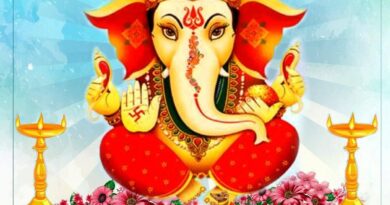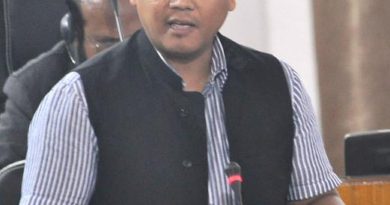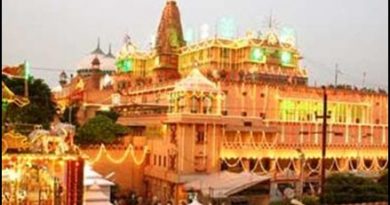JAMMU & Kashmir Divided Into 2 Union Territories: LGs Sworn In
As per the Jammu & Kashmir Reorganisation Act, the border state with effect from Thursday, October 31 has been split into two separate Union Territories -J & K and Ladakh. Radha Krishna Mathur was sworn-in as the first Lt Governor of Union Territory of Ladakh. Mathur was administered oath by chief justice of Jammu and Kashmir High Court Geeta Mittal at a simple function held at Leh. Girish Chandra Murmu has taken oath as the Lt Governor of Jammu and Kashmir. The oath-taking ceremony was held in Srinagar to highlight Kashmir’s integration with the rest of the country. With the bifurcation of Jammu and Kashmir, the number of states in India has come down to 28 and the number of Union Territories has gone up to nine. While Jammu and Kashmir will continue to have a legislature like Delhi & Puducherry, Ladakh will be without a legislative assembly like Chandigarh. Following the birth of two union territories after the central government scrapped Jammu and Kashmir’s decades-old special status under Article 370 on August 5, 2019, President’s rule imposed in undivided Jammu and Kashmir in June 2018 has been revoked, says a government notification. Satya Pal Mailk, 73, who was Governor of J&K, has been moved as the Governor of Goa. Lieutenant Governor of the Union Territory of Ladakh, after taking oath said: Development is composite; efforts will be made to carry out development work in all areas. A development package will be made, and education & health will play an important role in it. The Indian Constitution and the Indian laws will be applicable in the Union Territories. The strength of the Jammu and Kashmir assembly will be increased by seven seats to 114 from the existing 107 seats. The strength of the council of ministers will be trimmed to 10 per cent of the total strength of the legislature.The Union Territory of Jammu and Kashmir will continue to have five MPs in the Lok Sabha and will have four MPs in the Rajya Sabha. The Union Territory of Ladakh will have one MP.Jammu and Kashmir and Ladakh will have a common high court. Panchayat would be more powerful under the new arrangement. For recruitment of officers, Ladakh shall come under the ambit of the Union Public Service Commission or UPSC, but Jammu and Kashmir will continue to have Public Service Commission (PSC) as the recruiting agency for the gazetted services, as per the act approved by Parliament.




